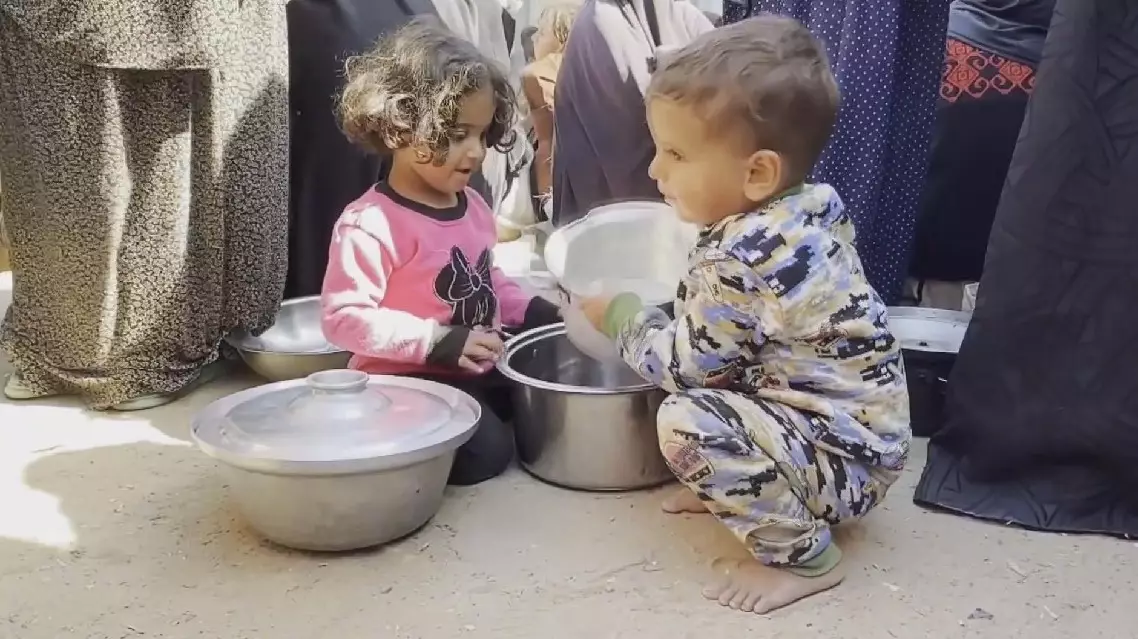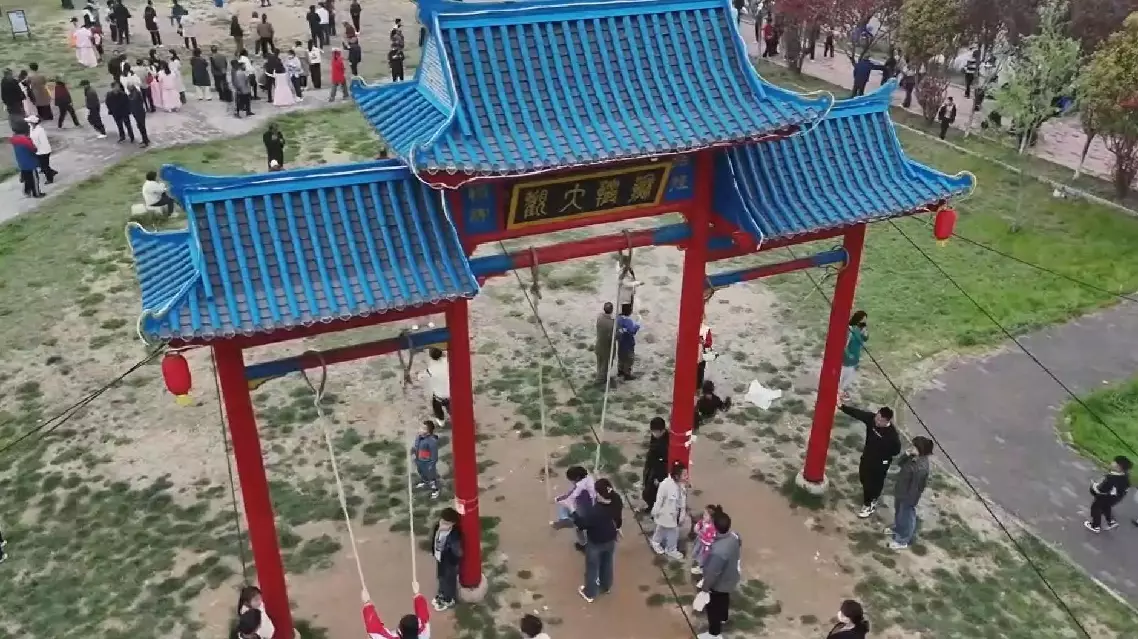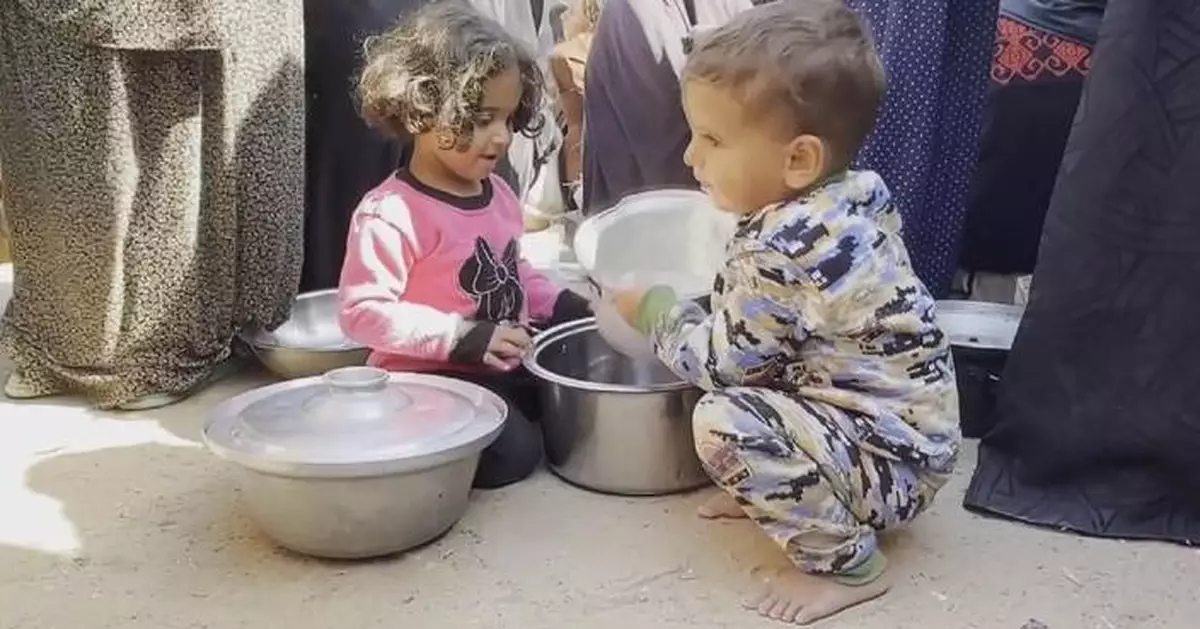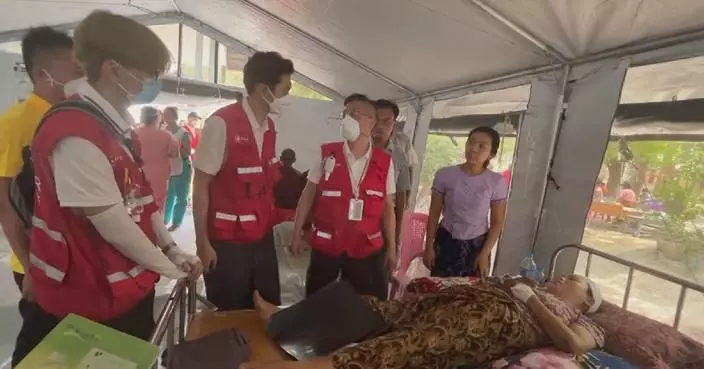Children are paying the highest price of the continuing crisis in the Gaza Strip, as worsening humanitarian conditions mean lives are being claimed not only by airstrikes but also by malnutrition, disease, and cold weather, a United Nations International Children's Emergency Fund (UNICEF) spokesman said on Thursday.
In an interview with the China Global Television Network (CGTN), UNICEF spokesman Kazem Abu Khalaf detailed the severity of the situation in Gaza in the new year.
""There is almost nothing to celebrate in Gaza to be honest, while [at] the [same] time the whole world is celebrating 2025. In Gaza, the population, 90 percent of them have acute food insecurity, tens of thousands of children are in the cycle of malnutrition - 31 percent of them are in acute malnutrition, and 4.5 percent of the 31 percent, they have already got to the stage of wasting, which is the deadliest. So civilians, children mainly, are paying the highest price of this war. And it's not [just] that they are falling [because of] bombardment, lack of shelter, malnutrition or diseases, now even the weather is claiming some lives of the children, unfortunately," Khalaf added.
Further exacerbating the plight of displaced Palestinians in the coastal enclave, Gaza has experienced several days of torrential rain and strong winds, causing widespread flooding and damage to makeshift shelters, and leaving many young children exposed to freezing conditions.
Khalaf noted the harrowing reports from Gaza-based health authorities that seven Palestinians, including six infants, have died in the past week due to hypothermia, and said immediate action is needed to save lives despite the difficulties in distributing aid to children in need.
"We, together with the humanitarian organizations that are working in the Gaza Strip, are trying to do our best. We are not sparing any efforts. But the challenges are really, really big. We have so far distributed around 27,000 tarps to cover 13,000, maybe 14,000 families. They can be used to repair the tents. And we are trying to distribute clothes, especially baby clothes. No less than 16,000 already already has been distributed, 20 percent of them, unfortunately, are in the north. The rest is in the center of the Gaza strip. And that's basically where the biggest number of people, the displaced [people] are. [There's] more to come, but the challenges are huge," said the spokesman.

Children paying highest price of war in Gaza: UNICEF spokesman
As the Qingming Festival approaches this Friday, various traditional folk activities have been held across China, celebrating the rich cultural heritage of the occasion.
With a 2,500-year history, Qingming Festival, or the Festival of Pure Brightness, observed in early April, uniquely combines ancestral worship with the celebration of spring. Falling on the 15th day after the spring equinox, this ritual-rich observance reflects China's enduring values of ancestral veneration and inspires deep introspection about what gives life meaning.
In Sijia Village, Huayin City, northwest China’s Shaanxi Province, a unique swing festival is held to mark the occasion. Eighteen different types of traditional swings, such as the spinning wheel swing, the Bagua swing reminiscent of a rotating carousel, and the balance swing designed for two people, have attracted many visitors.
Historically, Sijia Village served as a military post guarding the strategic Tongguan pass, a former mountain pass and fortress located south of the confluence of the Wei and Yellow Rivers. The swing tradition in the village has its origins in military training exercises like climbing and river crossing. The local swing culture further developed as regional trade flourished, eventually evolving into the "swing festival" that continues today.
"It's very exciting and tests your skill, endurance, and most importantly, your arm strength. You need to maintain balance," said Qu Xiangyang, a visitor.
In Rudong County, Nantong City, east China's Jiangsu Province, another traditional Qingming activity takes place - kite flying.
Flying kites as a way of making wishes is an age-old Qingming custom in this region. As a result, the Qingming Festival in Nantong is also known as the "Kite Festival."
The local Banyao whistling kite making skills is listed as one of the first national intangible cultural heritage items.
According to a folk culture expert, people traditionally write the names of diseases or misfortunes on paper, attach it to a kite, and release it into the sky. This practice is believed to drive away illness and disaster, while also serving as a way to make wishes.
In south China's Guangdong Province, a large tug-of-war competition is underway in Maoming City. Teams from different towns and streets are competing, attracting many locals to cheer on their teams.
Tug-of-war, which originated during the late Spring and Autumn period (770 BC - 476 BC), became part of Qingming customs during the Tang Dynasty (618-907). Emperor Xuanzong of the Tang Dynasty once organized large-scale tug-of-war competitions for the festival.
"Tug-of-war became very popular in the Tang Dynasty, even emerging as the national sport. It originated in the Jingchu region and later spread across the country. In ancient Lingnan (Southern China), tug-of-war games were a common tradition. Through these events, people seek to pray for peace, prosperity, and abundant harvests," said Yao Guojun, vice dean of the College of Arts and Law, Guangdong University of Petrochemical Technology.

Traditional folk activities held for Qingming Festival


















































